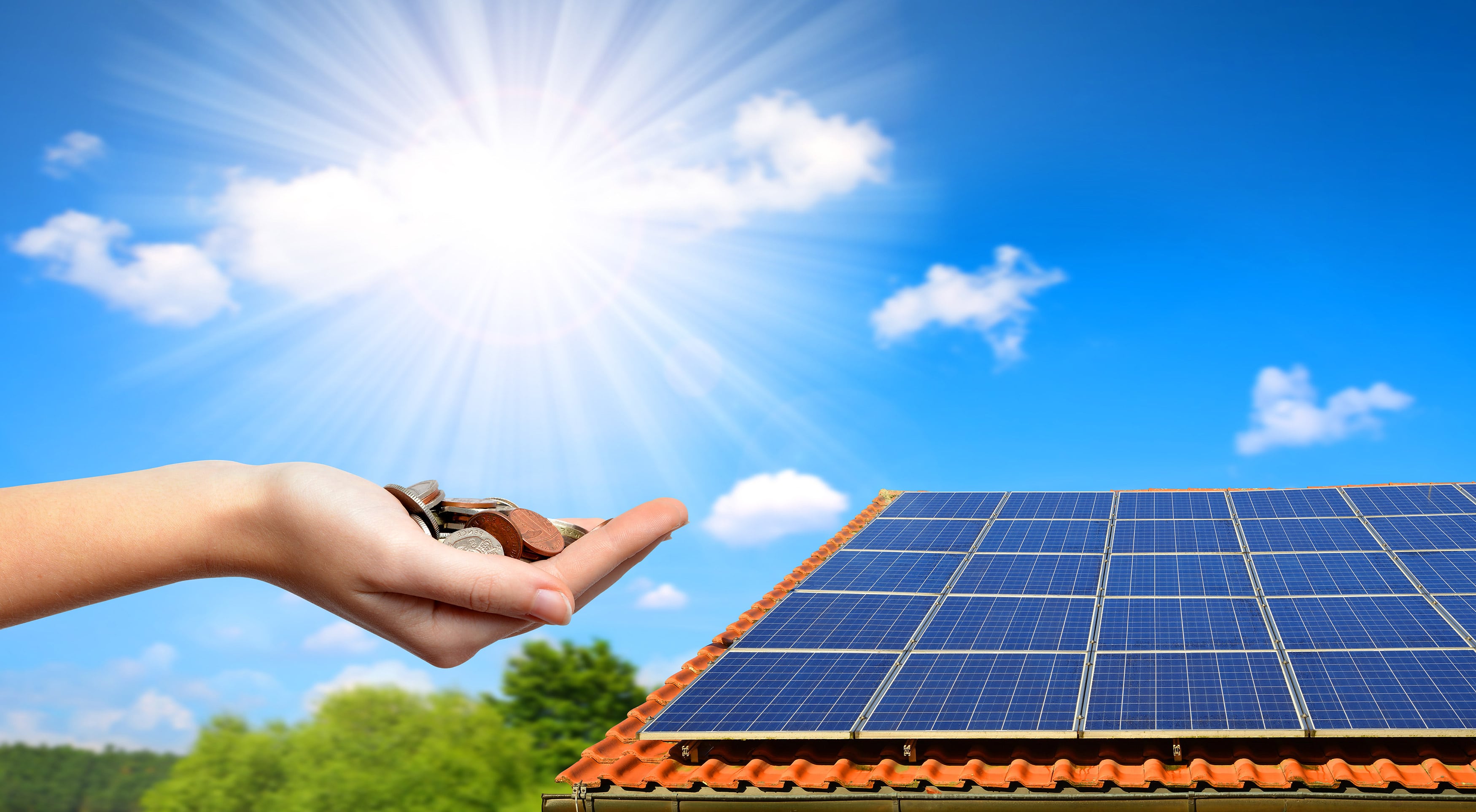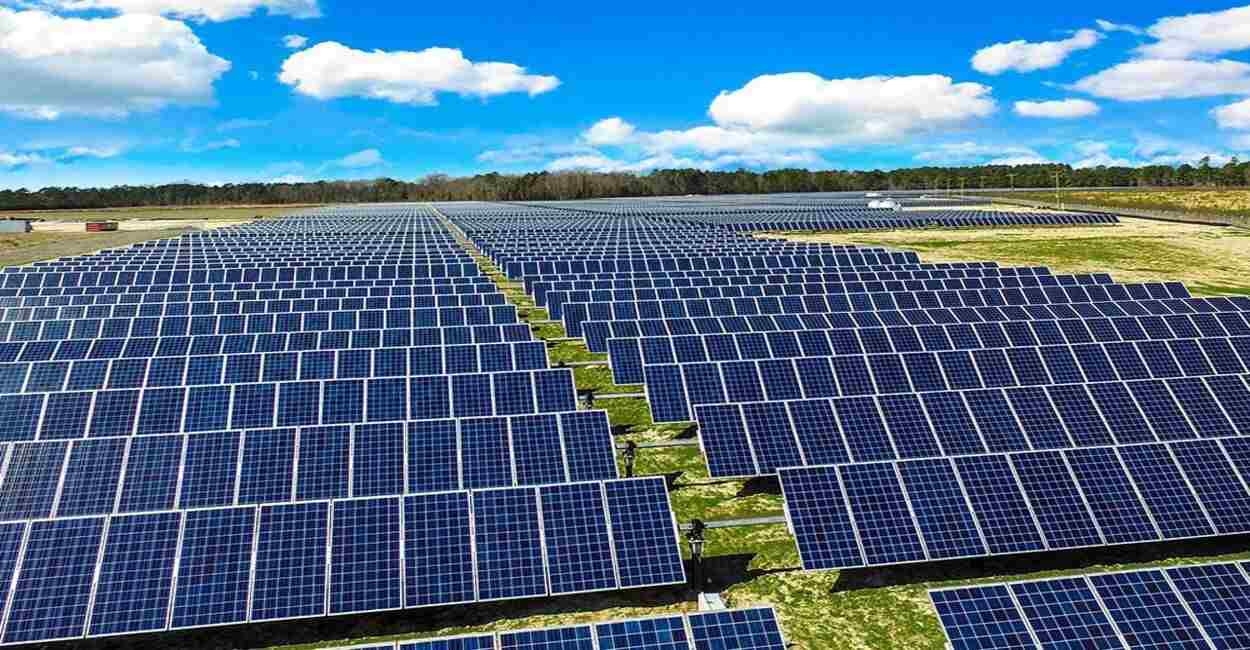How Solar Power Can Aid You Save Cash and Minimize Your Carbon Footprint
The combination of solar energy right into your energy profile presents an engaging possibility for both financial cost savings and ecological stewardship. By utilizing the sunlight's power, homeowners can considerably decrease their regular monthly utility expenses while additionally guarding versus the changability of future energy prices. Additionally, the transition to solar adds to a significant reduction in carbon discharges, lining up personal finance with broader ecological goals. As different federal government incentives become readily available, the concern occurs: just how can one successfully navigate the first financial investments and ongoing advantages of solar innovation to make the most of both financial and environmental gains?
Recognizing Solar Power Cost Savings
While the transition to solar energy often includes a preliminary investment, recognizing solar power cost savings is important for home owners and companies alike. Solar power systems can significantly minimize electricity bills by harnessing the sunlight's power, converting right into considerable lasting economic benefits. By producing their own power, customers minimize dependence on grid power, which is subject to changing rates. These savings can collect gradually, often causing a fast return on investment.
Furthermore, solar energy systems might get approved for different monetary incentives, consisting of tax credit scores and discounts, even more enhancing their cost-effectiveness. The availability of internet metering allows customers to market excess energy back to the grid, creating an additional earnings stream. These factors contribute to the total financial savings connected with solar power.

In enhancement to direct monetary savings, solar energy provides the added advantage of raising home value. Houses furnished with photovoltaic panels are often more appealing to purchasers, as they guarantee lower energy costs - Simply Solar Illinois. Recognizing these components is essential for anyone taking into consideration solar power, as it highlights not simply the possible financial gains, yet additionally the more comprehensive ecological and economic benefits of adopting renewable resource solutions
Initial Expenses vs. Long-Term Conveniences
When reviewing solar energy, it is essential to weigh the initial prices against the long-term advantages. The in advance investment for photovoltaic panels, installment, and related equipment can be significant, usually varying from $15,000 to $30,000, depending upon the system size and home power demands. This first expenditure may hinder some house owners; nevertheless, it is crucial to think about the potential cost savings gradually.
As soon as installed, solar power systems can significantly lower and even remove regular monthly electrical power bills, leading to considerable long-term monetary advantages. Research studies show that house owners can save anywhere from $10,000 to $30,000 over the life-span of their solar system, commonly 25 years. Furthermore, several states supply motivations, tax credit scores, and rebates that can balance out initial prices, making solar more easily accessible.

Lowering Your Carbon Footprint
Lowering your carbon footprint is a crucial factor to consider in today's environmentally aware society, and embracing solar energy is among the most efficient strategies to accomplish this objective. Solar energy is a tidy, renewable source that considerably lessens reliance find more on nonrenewable fuel sources, which are major contributors to greenhouse gas emissions.

In addition, the extensive adoption of solar modern technology encourages the growth of green work and supports technologies in power storage and effectiveness. The more individuals and companies purchase solar power, the greater the collective decrease in carbon emissions, cultivating a cleaner atmosphere for future generations.
Federal Government Incentives and Discounts
Adopting solar power not just benefits the atmosphere yet can likewise lead to considerable economic savings, particularly with the schedule of government incentives and rebates. Different government, state, and local programs are created to urge property owners and businesses to purchase solar power systems, making the transition much more economical.
Among one of the most prominent rewards is the Federal Financial Investment Tax Obligation Credit Score (ITC), which allows solar system owners to deduct a considerable percentage of the installment prices from their federal taxes. This motivation has actually been pivotal in decreasing the in advance expenditures linked with solar power systems. Additionally, many states provide their own tax obligation debts, grants, and rebates that can further enhance savings.
Furthermore, some neighborhood federal governments supply real estate tax exceptions for solar installments, making certain that house owners do not deal with boosted residential property tax obligations as a result of their renewable resource financial investments. Utility business may also offer incentives, consisting of net metering and feed-in tariffs, which permit solar power individuals to sell excess power back to the grid.
Choosing the Right Planetary System
Choosing the proper solar system is essential for optimizing energy efficiency and economic benefits. The decision hinges on several variables, including energy demands, budget plan, and offered space. Home owners must begin by analyzing their electrical energy usage to identify the system dimension required for optimum performance.
Following, think about the various kinds of solar innovations readily available. Simply Solar Illinois. Photovoltaic (PV) panels are the most typical, converting sunshine straight right into power, while solar thermal systems focus on home heating water. Each type has unique benefits depending on specific requirements
Budget plan factors to consider are likewise vital. Preliminary installment costs can vary significantly, so it is very important to contrast quotes from several suppliers and explore financing choices. Federal government incentives and refunds can better lower the financial problem, making planetary systems much more obtainable.
Conclusion
In summary, solar energy presents a sensible solution for accomplishing considerable expense financial savings while at the same time minimizing carbon exhausts. The preliminary try this website financial investment, though substantial, yields considerable lasting economic benefits, with prospective financial savings varying from $10,000 to Check Out Your URL $30,000 over 25 years. The environmental benefits of solar power add to sustainable techniques critical for combating environment adjustment. Government motivations improve the expediency of solar modern technology adoption, urging a shift towards a cleaner, more financially efficient power resource.